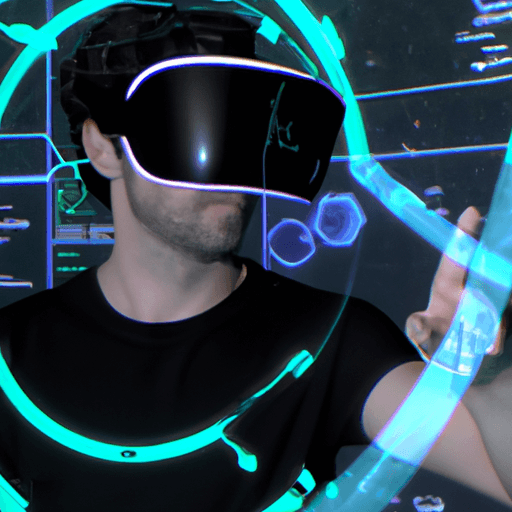Virtual Reality: The Vanguard of Modern Entertainment
Virtual Reality (VR), an emerging technology, is profoundly influencing and transforming the modern entertainment industry. From its roots to its growing applications in multiple entertainment sub-sectors such as gaming, movies, and live performances, VR introduces an unprecedented level of immersion and user engagement.
The Roots of Virtual Reality
Contrary to popular belief, the concept of VR has existed long before it became a trend in contemporary times. It was scientist and visionary, Ivan Sutherland, who, in 1968, pioneered a head-mounted display system and marked the birth of VR. Since then, huge strides led by technological advancements have been made, evolving VR into a powerful entertainment tool.
Current Applications of Virtual Reality
Gaming
In the gaming industry, VR has introduced an entirely new level of immersion. Games developed for VR headsets such as the Oculus Rift, PlayStation VR, and HTC Vive allow gamers to virtually step inside game worlds, resulting in highly engaging and immersive experiences.
Movies
VR technology brings a new perspective to storytelling in the realm of movies. Cinematic VR allows viewers to experience films in a 360-degree environment, elicting a sense of 'being there' right in the middle of the action.
Live Performances
The performance industry also uses VR to provide audiences with novel experiences. VR concerts, for instance, enable fans to enjoy performances of their favorite artists from the comfort of their homes, giving them an up-close and personal experience.
Comparing VR with Previous Entertainment Experiences
A comparison between traditional forms of entertainment and VR-enabled ones reveals significant differences in user engagement and immersion level. VR provides a more immersive experience by incorporating sensory feedback and interactions that mimic reality. It engages users more effectively by allowing them to interact with the virtual environment directly.
Pros and Cons of VR in Entertainment
Like every technology, VR has its advantages and drawbacks. Its major benefit lies in its anatomical approach to entertainment, offering high levels of immersion and interactivity. However, its high cost, requirement of advanced hardware, and potential physical side effects like motion sickness and eye strain are the possible drawbacks.
The Future of VR in Entertainment
The potential of VR is yet to be fully realized, but this technology seems to be heading towards revolutionizing the entertainment industry further. Its future may include more life-like virtual environments, improved VR content creation, and possibly VR as a standard feature in home entertainment systems.
Implications for Consumers, Content Creators, and the Market
The role of VR in the entertainment industry will inevitably affect various stakeholders. Consumers may benefit from richer and more engaging entertainment experiences, but may also face health risks and high costs. Content creators stand to benefit from new platforms for their work, but must also adapt to the challenges of creating high-quality VR content. As for the market, the popularization of VR may bring lucrative opportunities, but it also comes with the potential for oversaturation and stiff competition.



















Comments
Leave a Comment